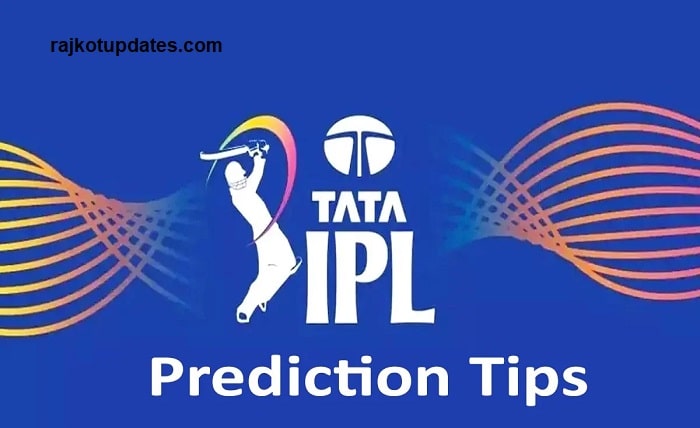Machine Learning for Match Predictions in IPL

The IPL, a vibrant spectacle of high-octane cricket, thrives on its unpredictable nature. Yet, the allure of predicting the victor and strategizing fantasy teams fuels a constant quest for insights. Machine learning (ML) emerges as a potential game-changer, offering the ability to analyze vast datasets and make informed guesses about IPL matches. However, a perfect prediction system remains a fantasy. This article delves into the potential and limitations of machine learning in predicting the victors of the IPL, exploring the factors at play, the algorithms employed, and the challenges encountered.
Stay ahead of the game with the IPL match points table, easily accessible on platforms like Indibet, your premier destination for T20 betting excitement. Indibet not only provides comprehensive insights into team standings but also offers a seamless betting experience for cricket enthusiasts worldwide.
The Art of Prediction: Unveiling the Complexities
Accurately predicting the outcome of an IPL match is akin to deciphering a complex equation. Numerous factors influence the final score:
- Team Composition: A team’s batting and bowling prowess, player experience, and overall balance significantly impact its chances of winning. Analysing past performance data, player strengths and weaknesses, and recent form provides valuable insights.
- Pitch Conditions: The pitch itself becomes a character in the drama – a slow turner might favor spinners who can exploit its grip, while a hard, bouncy surface might be a paradise for fast bowlers who can extract vicious bounce. Historical data on pitch behavior at different venues becomes crucial for prediction models.
- Toss and Captaincy: Winning the toss can provide a strategic advantage, allowing a captain to choose whether to bat first or bowl first based on their team’s strengths and their reading of the pitch. While toss outcomes are random, a captain’s tactical decisions significantly influence the game’s flow. However, these factors are inherently unpredictable and difficult to model using ML.
- Momentum and External Factors: Teams in good form tend to carry a winning mentality and momentum, while struggling teams might lack confidence. Analyzing recent performance data can offer clues about a team’s current form. External factors like weather conditions, injuries to key players, or even crowd support can disrupt pre-match predictions.
The Power of Machine Learning: Algorithms and Data Fueling Predictions
Machine learning algorithms can analyze vast datasets on these factors and historical IPL matches to identify patterns and make predictions about future outcomes. Here’s a glimpse into the world of ML for IPL predictions:
- Data Gathering and Preprocessing: The foundation of any ML model is data – the more data, the better. This includes historical player performance statistics (batting averages, bowling strike rates), team win-loss records, pitch analysis data from previous matches at specific venues, and even weather information. Extensive data cleansing and pre-processing are crucial to ensure the accuracy of predictions. Irrelevant or inaccurate data can lead to misleading outcomes.
- Model Selection and Training: Different ML algorithms excel at different tasks. Choosing the most suitable algorithm (e.g., Logistic Regression, Random Forest, Support Vector Machines) for predicting match outcomes depends on the specific data and desired outcomes. The chosen algorithm is then trained on historical data, allowing it to “learn” the complex relationships between various factors and match results.
- Evaluation and Refinement: No ML model is perfect. Evaluating the model’s performance on unseen data (data not used during training) is crucial. This reveals the model’s accuracy and helps identify areas for improvement. The model can then be refined by adjusting parameters, incorporating additional data sets, or even trying a different algorithm altogether. With T20 betting on Indibet, fans can elevate their engagement with the IPL, wagering on match outcomes, player performances, and various in-play markets. From predicting the winner of the next match to betting on top run-scorers and wicket-takers, the possibilities are endless.
The Numbers Game: Metrics to Assess Prediction Accuracy
While predicting the exact outcome of an IPL match remains a challenge, ML models can be evaluated based on their accuracy:
- Classification Accuracy: This metric measures the percentage of matches where the model correctly predicts the winner. An accuracy of 65% suggests the model performs better than random chance in predicting winners. A higher accuracy signifies a more reliable model.
- Error Rate: The error rate is the inverse of accuracy, indicating the percentage of matches where the model’s prediction is wrong. A lower error rate signifies a more reliable model.
- Precision and Recall: These metrics provide a deeper understanding of the model’s performance. Precision measures the proportion of matches predicted as wins by the model that were actually won by that team. Recall measures the proportion of actual wins that the model correctly predicted.
Challenges and Limitations: The Reality Check
Despite its potential, ML for IPL match predictions faces challenges:
- Incomplete Data: Capturing the human element of the game – a player’s brilliant improvisation or a captain’s inspired bowling change – is difficult to quantify in data. These unpredictable moments can significantly alter the course of a match.
- Form Fluctuations and External Factors: Player form can fluctuate significantly throughout the tournament due to various reasons. Similarly, external factors like injuries or unexpected weather conditions can disrupt pre-match predictions.
Indibet’s user-friendly interface and competitive odds make it the go-to platform for T20 betting, ensuring that every match is an opportunity to add excitement to your cricket viewing experience. Join the action today on Indibet and immerse yourself in the thrill of IPL cricket while staying updated with the latest match points table, guiding your betting decisions with valuable insights.




